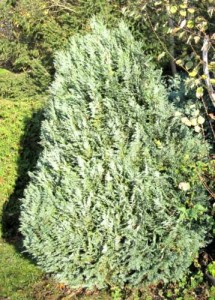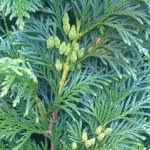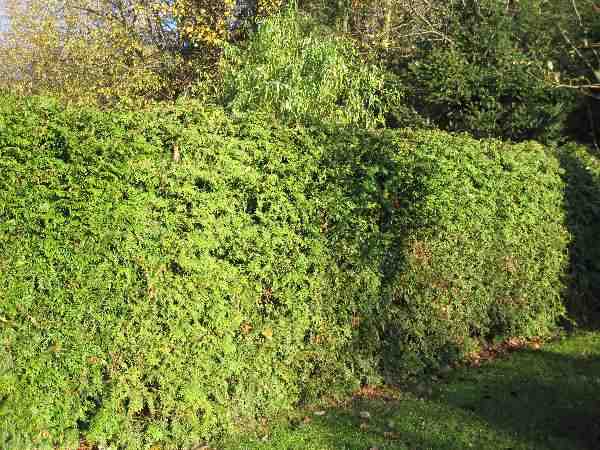Very toxic and dangerous for horses: Thuja trees
The Thuja (also known as “Arborvitae”) is a genus of an evergreen tree.
Because of its toxic substances they are a real danger for any animals and especially for horses. People use them for hedges and decorations. Therefore you can usually find them near the pasture or at riding competitions.
The Cypress Family
The genus of the Thuja tree is categorized in the family of the cypress family and offers five different species. The most common species in Western Europe is the Eastern Arborvitae (Thuja occidentalis) which has its origins in the north-east of America and in the east of Canada. Due to its beautiful and vital leaves also Europeans use this tree as an ornamental plant.
You can find them at hedges, cemeteries and in decoration articles.
Outward appearance
 The evergreen arborvitaes can reach a height of 30 m. The leaves have the shape of squamas and are colored in bright and dark green. The whole trunk offers many branches which grow in all directions. You can distinguish every single species of the Thuja tree by the color of the cones. Therefore the Eastern Arborvitae (Thuja occidentalis) offers yellow-brown cones and the Chinese Arborvitae (Thuja orientalis) has blue ones. Additionally the smell of the leaves may help to identify the respective species: if you rub the leaves of the Eastern Arborvitae you have the aroma of apple in your hands.
The evergreen arborvitaes can reach a height of 30 m. The leaves have the shape of squamas and are colored in bright and dark green. The whole trunk offers many branches which grow in all directions. You can distinguish every single species of the Thuja tree by the color of the cones. Therefore the Eastern Arborvitae (Thuja occidentalis) offers yellow-brown cones and the Chinese Arborvitae (Thuja orientalis) has blue ones. Additionally the smell of the leaves may help to identify the respective species: if you rub the leaves of the Eastern Arborvitae you have the aroma of apple in your hands.
Toxicity for horses
All species of the Thuja tree are really dangerous for horses. Especially the cones, wood and ends of the twigs offer a high concentration of toxic substances. These are essential oils which contain the neurotoxin Thujone. The  simple contact between the skin of the horse and these toxic parts of the tree can already cause irritations and itching. However, it is much more dangerous if horses nibble at the twigs so that the poisonous substances enter the organism. In this case there is a high risk for an acute poisoning. Symptoms are diarrhea, spasms and loose of conscience. The toxic substances attack liver and kidney and cause a long-termed damage of these organs. A dose of more than 500 g can lead to death! Besides the horse also cows, cattle, sheep, goats, dogs, cats and rodents are affected by the danger of the Thuja tree.
simple contact between the skin of the horse and these toxic parts of the tree can already cause irritations and itching. However, it is much more dangerous if horses nibble at the twigs so that the poisonous substances enter the organism. In this case there is a high risk for an acute poisoning. Symptoms are diarrhea, spasms and loose of conscience. The toxic substances attack liver and kidney and cause a long-termed damage of these organs. A dose of more than 500 g can lead to death! Besides the horse also cows, cattle, sheep, goats, dogs, cats and rodents are affected by the danger of the Thuja tree.
Surf tips:
- St. James-Ragwort: very poisonous and an acute threat for horses
- Foxglove- extremely toxic for horses and humans
- Monkshood- the most poisonous plant in whole Europe
—All statements without guarantee—

2 Comments
Comments are closed.